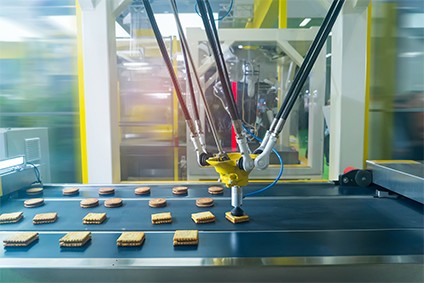Introduction
In today's rapidly progressing food market, businesses are looking for lasting services to fulfill the growing demand for high quality food products while decreasing their environmental influence. Contract food manufacturing has actually become a sensible choice for companies aiming to outsource their production needs while maintaining control over item growth and also quality control. This post discovers the principle of contract food manufacturing in Australia and its role in advertising sustainability within the food industry.
The Surge of Contract Food Manufacturing in Australia
Understanding Agreement Food Manufacturing
Contract food manufacturing is a strategic collaboration between a brand proprietor and a contract manufacturer, where the last generates items on behalf of the previous. This arrangement allows brand name proprietors to contract food manufacturer concentrate on marketing, item growth, and also distribution while leveraging the experience and also sources of specialized agreement manufacturers.



Benefits of Agreement Food Manufacturing
Cost Efficiency: Contract food manufacturing eliminates the demand for substantial capital expense in infrastructure, equipment, as well as manpower. This cost-saving action permits brand names to allot their sources towards other crucial locations of business growth. Scalability: As demand for a specific item fluctuates, agreement makers can promptly change production levels to accommodate market demands. This adaptability makes sure that brand names can fulfill consumer need without excess supply or wastage. Expertise as well as Technology: Contract producers usually possess considerable understanding and experience in certain food categories or procedures. By working together with these experts, brand names can tap into their creativity as well as harness ingenious solutions for product development as well as improvement. Quality Assurance: With rigid quality control steps in place, contract suppliers follow market criteria and regulative demands. This commitment to excellence guarantees that brand names deliver risk-free and high-quality products to consumers consistently. Supply Chain Administration: Contract food manufacturing improves the supply chain by settling production, product packaging, labeling, and circulation under one roof. This integrated strategy lessens logistical intricacies as well as enhances overall operational efficiency.The Ecological Effect of Agreement Food Manufacturing
Reducing Carbon Footprint
Contract food production offers possibilities to minimize the environmental influence of food manufacturing with different means:
Efficient Source Application: Agreement producers enhance source consumption by carrying out energy-saving techniques, reducing water usage, as well as lowering waste generation. These lasting procedures contribute to a reduced carbon impact across the entire manufacturing process. Locally Sourced Active ingredients: By sourcing ingredients from local vendors, agreement suppliers minimize transportation ranges and associated discharges. This technique sustains local economic climates while advertising sustainability within the supply chain. Eco-Friendly Packaging: Agreement food manufacturers highlight making use of green product packaging materials, such as eco-friendly or recyclable alternatives. This dedication to sustainable product packaging decreases waste and cultivates accountable consumption.Embracing Sustainable Energy
Contract food producing facilities in Australia are significantly adopting renewable resource sources to power their procedures. Photovoltaic panel, wind generators, as well as various other tidy power services help reduce dependence on fossil fuels and also contribute to a greener future for the industry.
Addressing Sustainability Challenges in Contract Food Manufacturing
Waste Administration as well as Reusing Initiatives
Contract food makers prioritize waste management with detailed recycling programs and also waste reduction strategies. By implementing reliable waste partition systems, firms can divert substantial amounts of waste from landfills and also promote a round economy.
Water Conservation Measures
Water scarcity is an international problem, and also contract food manufacturers play their part in addressing this obstacle. Companies purchase water-saving technologies, such as sophisticated purification systems and water reuse efforts, to lessen their freshwater consumption.
Collaboration with Lasting Suppliers
Contract food suppliers proactively look for collaborations with suppliers committed to sustainable methods. By prioritizing eco conscious distributors, these firms guarantee that their entire supply chain lines up with sustainability goals.
FAQs
What is contract food manufacturing? Contract food manufacturing refers to the outsourcing of food manufacturing to specialized makers that create products in support of brand owners.
How can contract food manufacturing advantage organizations? Contract food manufacturing supplies cost effectiveness, scalability, knowledge, and quality control to brand names wanting to concentrate on advertising and distribution.
How does contract food manufacturing advertise sustainability? By optimizing source usage, embracing renewable energy, as well as applying waste management and also recycling efforts, contract food manufacturing reduces its environmental impact.
What are some sustainable product packaging options in contract food manufacturing? Environment-friendly product packaging materials such as naturally degradable or recyclable options are frequently made use of in contract food manufacturing to reduce waste.
How do agreement food makers save water? Contract food suppliers purchase water-saving technologies as well as implement water reuse campaigns to reduce their freshwater consumption.
What function does collaboration with lasting vendors play in contract food manufacturing? By partnering with environmentally aware providers, contract food producers make sure that their whole supply chain lines up with sustainability goals.
Conclusion
Contract food manufacturing presents a sustainable solution for companies looking for to fulfill the expanding need for high quality food products while decreasing their ecological effect. By leveraging the know-how of specific producers as well as adopting environmentally friendly practices, brands can add to a greener future for the Australian food market. Welcoming sustainability not just benefits the setting yet also improves brand name credibility as well as consumer rely on a significantly mindful market.